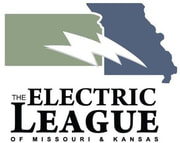Plug Into Electrical Safety
DO'S...
DON'TS...
- DO use extension cords only on a temporary basis.
- DO put safety covers on unused receptacle outlets and extension cords.
- DO unplug an appliance and call an electrician if the receptacle faceplate feels hot or if there is sparking, smoke, or odor coming from the outlet, plug or appliance.
- DO examine appliance and extension cords regularly for signs of wear and tear or damage to insulation.
- DO unplug all non-essential electrical appliances when not in use. DO test GFCIs monthly according to manufacturer's instructions to determine that they are working properly.
- DO use extension cords that have been listed by a nationally recognized testing laboratory.
DON'TS...
- DON'T use extension cords as permanent substitute for inadequate house wiring.
- DON'T use extension cords that are worn or damaged and don't attach extension cords to the wall with nails or staples.
- DON'T put extension cords under rugs where they might be walked on; don't rest anything on an extension cord.
- DON'T overload cords with too many appliances.
- DON'T touch any appliance that has emitted an electrical shock until the appliance has been unplugged.
- DON'T place electrical appliances where they might come in contact with water. Never reach into water for a plugged-in appliance – turn off power, then unplug it.
- DON'T place an appliance cord where it might touch a hot surface.
- DON'T leave any wiring exposed in outlets and switches. Use the correct size faceplate.
- DON'T ignore switches or outlets that don't work. Obtain the help of a qualified electrician.
- DON'T let cords hang over countertops where children can pull down an appliance.
